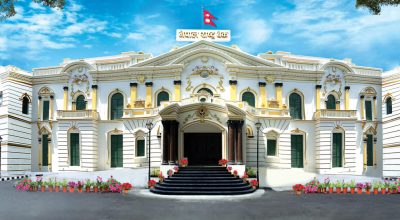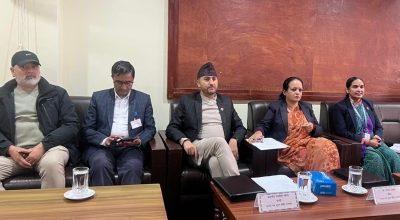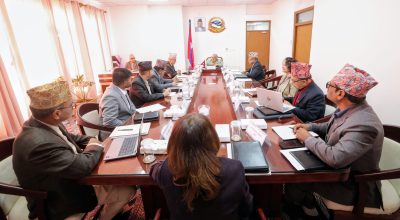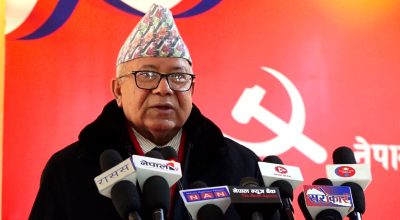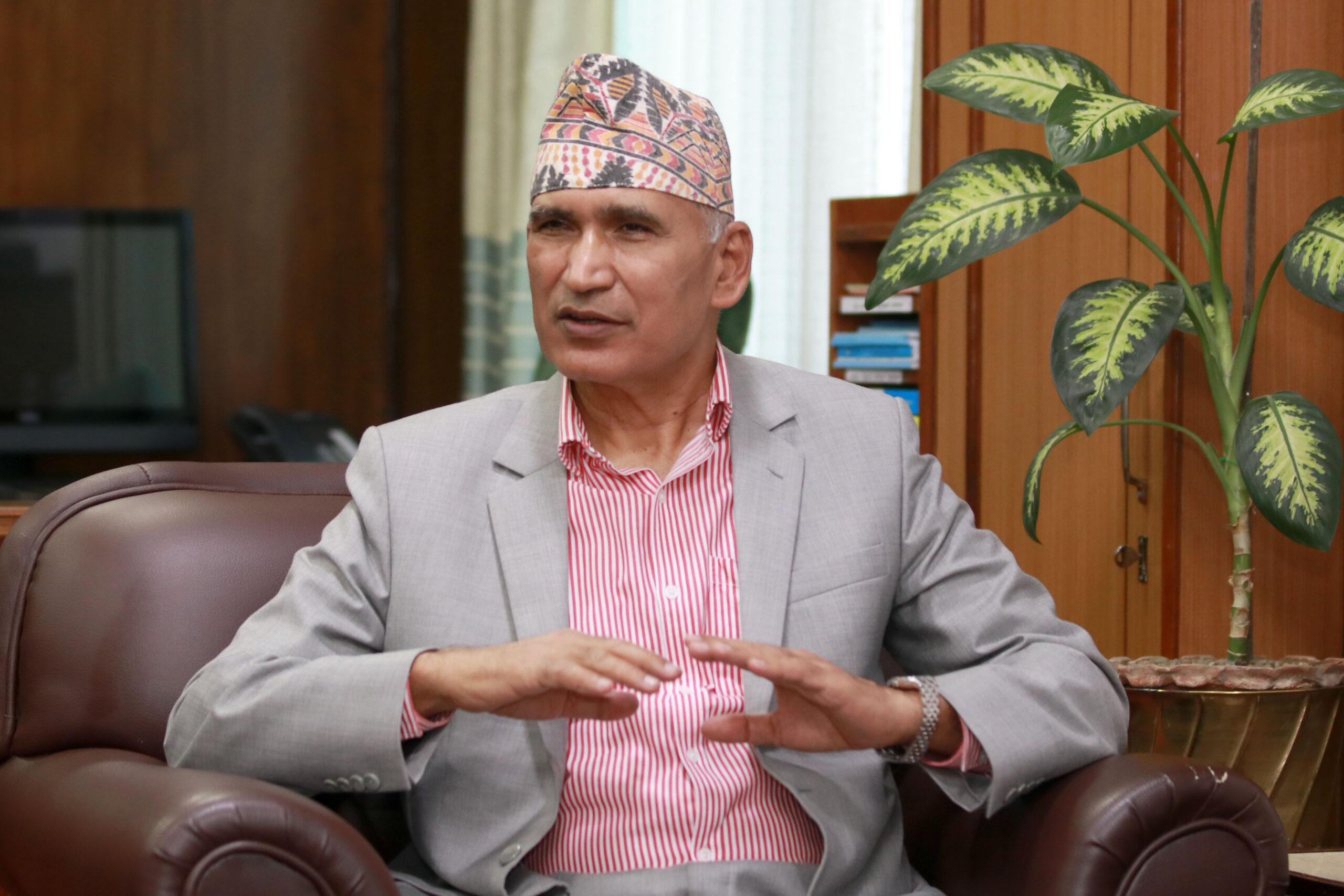
Mr. Bishnu Prasad Poudel is the Honorable Minister for Finance (MoF) in the present Council of Ministers. Mr. Poudel is taking charge of the ministry for his second term at a time when the impact of COVID-19 has swept through all sectors of the economy. IBN Dispatch caught up with Mr. Poudel to talk about the impact of the pandemic in Nepal and steps being taken by the Government of Nepal to retain Nepal’s position as an attractive destination for foreign direct investment (FDI). Mr. Poudel holds the view that Nepal can retain its position as an ideal investment destination despite the Covid-19 crisis.
You are leading the MoF for the second time. How are you assessing the impact of COVID-19 in Nepal?
The impact of Covid-19 has been felt across the world, Nepal is not immune to this pandemic. As a least developed country, it is natural that the impact of the pandemic is higher in Nepal compared to other better off countries. Its impact is visible in almost all aspects of economic and social life. The pandemic has led to disruptions in supply chains and employment generation. We are standing our ground to carry out economic activities, overcoming the hurdles caused by the Covid-19 crisis.
What are the steps the government is taking to attract FDI amidst the Covid-19 crisis?
Taking into consideration the significance of FDI to our national prosperity, we have already established a high-level body like the Investment Board Nepal (IBN) to promote and facilitate investment for creating a conducive business environment in the country. Besides such institutional development initiatives, we have been organizing Nepal Investment Summits periodically with fresh efforts for legal and procedural reforms to attract more FDI into the country. IBN itself has been organizing various engagements with investors on different occasions. In these difficult circumstances, it is the prime responsibility of our government to promote Nepal as a preferred FDI destination by restoring the confidence of investors. For this, we need to identify potential investment sectors as well as viable projects and inform prospective investors about investment security and attractive returns on investment. We want to convince investors that Nepal is an appropriate destination to secure handsome returns with a favorable business environment. Given the persisting Covid-19 crisis, we need to further accelerate our investment promotion initiatives to establish Nepal as a first-choice destination.
How are you assessing the role of the private sector in the overall economic development of the nation?
The private sector is an essential pillar of our economy. I think we should focus on boosting private sector confidence, addressing their valid concerns, and encouraging private-sector investment to enhance productivity and employment generation in the country. We should develop and update legal and institutional frameworks and move forward with associated decisions essential for domestic as well as foreign investment. After the pandemic, we should revisit our existing policies and laws on private investment and identify legal and institutional bottlenecks that have been impeding the investment climate.
What is your take on grievances expressed by investors over a lack of inter-agency coordination and how can we improve our services?
One of the reasons behind the establishment of IBN is to end unnecessary bureaucratic hassles faced by investors and other service seekers. Our priority must be to provide service and facilitation through a One-Stop-Service (OSS) center so that investors do not have to approach other agencies spending time and effort getting tasks done. We are committed to maximizing effective service delivery through policy and legal reforms. However, we have been witnessing some deficiencies in implementing policies that have already been introduced. To ensure hassle free services and sound facilitation to investors, we need to strengthen inter-agency coordination and simplify the business process by drawing on lessons from the past.
How are you evaluating the significance of IBN in promoting and facilitating FDI in the country?
As a high-level Government of Nepal agency, IBN should be further empowered. To make it more effective in executing its defined responsibilities, we need skilled human resources and enhanced institutional capacity. IBN should demonstrate its presence both at the national as well as international level. It is high time that IBN justifies its relevance by enhancing its capacity for investment promotion and facilitation.
As an apex agency for investment promotion and facilitation in Nepal, IBN should convey the message that investors intending to invest here can get high-class services during the investment process. IBN should take the lead in promoting investment in high potential sectors where Nepal can offer competitive and comparative advantages to investors such as energy, tourism, infrastructure, and agriculture among others.
We are not performing well in terms of capital expenditure. How can we increase development expenditure to give impetus to development activities?
Low capital expenditure is an outcome of deficiencies in existing laws, policies, processes, and institutional capacity. First, we need to overcome such weaknesses by undergoing necessary reforms. Second, we need to make every institution/individual accountable towards their duties in the process of project development and implementation. We need to clearly designate and define the agencies responsible for boosting capital expenditure and make them accountable. Third, the serious error I have identified regarding capital expenditure is that we do not conduct proper project preparations before the implementation phase.
Project selection takes place without proper project preparation, then the budget is allocated followed by a tender contract, and then the construction begins. We need to focus on two aspects seriously – project preparation and project implementation. Project preparation involves project selection, clearance of the right of way (RoW), land acquisition, approval of the environmental impact assessment (EIA), initial environmental examination (IEE) preparation for basic infrastructure, the detailed project report, master plan and resource management.
Only after completing these tasks, should a tender be called before the agreement is signed. No obstacle should come about once the implementation of the projects begins to ensure that projects are completed within a set deadline. If we move forward systematically with adequate homework in project preparation and implementation, I don’t think increasing capital expenditure will be a big deal.
How can we persuade investors that Nepal is a Covid-19 resilient economy that offers an investment friendly environment in the coming days? And, what would be your message to international investors?
Nepal has demonstrated its capability to handle the Covid-19 pandemic in a successful and prudent way. We have been informing investors that Nepal is resilient to such pandemics and that no investor needs to worry about health-related facilities and security of their investment. Investors can find ample opportunities in Nepal’s immense potential in hydropower, tourism, agriculture, and infrastructure which can offer attractive returns on their investment. It is also an opportunity for investors to take part in Nepal’s journey to prosperity. The significance of foreign technology and foreign investment is very high for emerging economies like Nepal. Without FDI, which is both a source of technology and capital, we cannot achieve economic prosperity. I believe IBN will revalidate its significance at a time when the country needs massive investment. I would like to urge national and international investors that Nepal is still an ideal destination for investment and the government is ready to take on any kind of legal, policy and procedural reforms to make the investment climate more favorable.
(source: Investment Board Nepal)





